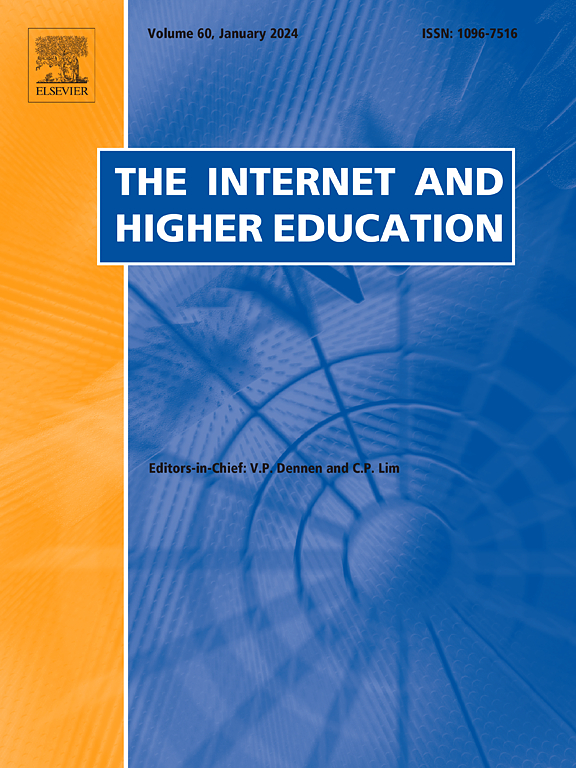基于数字游戏的学习支持对不同先验知识水平学习者的影响
IF 6.8
1区 教育学
Q1 EDUCATION & EDUCATIONAL RESEARCH
引用次数: 0
摘要
随着数字技术的飞速发展和游戏产业的蓬勃发展,数字游戏学习(digital game-based learning, DGBL)已成为教育领域的一个重要研究领域。教育游戏中有效的学习支持能够产生积极的结果,而设计不良的学习支持则会阻碍学习者的心流和自主性。以往的研究往往侧重于评估其有效性,而忽视了基于设计特征的优化。本研究通过两个实验来探讨学习支持设计特征在考虑学习者特征的情况下对学习效果的影响。研究1考察了学习支持时间(支持前与支持后)对不同先验知识学习者的影响。结果表明,学习支持时间和学习者的先验知识对学习成就、内在认知负荷和内在动机有交互作用。行为上,支持前有利于新手,而支持后有利于专家,通过提高学习成绩和减少挫折感。研究2考察了学习者控制与系统控制两种支持传递方式对不同先验知识水平学习者的影响。研究结果表明,支持提供方式与学习者的先验知识对学习成绩有交互作用。在行为上,系统控制的支持通过引导新手的探索来帮助他们,而专家则受益于学习者控制的支持,因为他们具有调节学习的能力。鼓励未来的研究探索认知神经机制,以提供更深入的见解。本文章由计算机程序翻译,如有差异,请以英文原文为准。
The impact of learning supports in digital game-based learning on learners with different levels of prior knowledge
With rapid advancements in digital technology and the booming gaming industry, digital game-based learning (DGBL) has become a crucial research area in education. Effective learning support in educational games could yield positive outcomes, while poorly designed learning support may hinder learner's flow and autonomy. Prior research has often focused on evaluating its effectiveness but overlooked its optimization based on design characteristics. This study conducted two experiments to explore how learning support design features impact learning outcomes by considering learners' characteristics. Study 1 examined the effects of learning support timing (pre-support vs. post-support) on learners with varying prior knowledge. Results revealed interactive effects between learning support timing and learners' prior knowledge on learning achievement, intrinsic cognitive load, and intrinsic motivation. Behaviorally, pre-support benefited novices while post-support benefited experts by improving learning performance and reducing frustration. Study 2 investigated the effects of the mode of support delivery (learner-controlled vs. system-controlled) on learners with different levels of prior knowledge. Findings indicated an interactive effect between the mode of support delivery and learners' prior knowledge on learning achievement. Behaviorally, system-controlled support helped novices by guiding their exploration, while experts benefited from learner-controlled support due to their competence in regulating their learning. Future research is encouraged to explore cognitive neural mechanisms to provide deeper insights into it.
求助全文
通过发布文献求助,成功后即可免费获取论文全文。
去求助
来源期刊

Internet and Higher Education
EDUCATION & EDUCATIONAL RESEARCH-
CiteScore
19.30
自引率
4.70%
发文量
30
审稿时长
40 days
期刊介绍:
The Internet and Higher Education is a quarterly peer-reviewed journal focused on contemporary issues and future trends in online learning, teaching, and administration within post-secondary education. It welcomes contributions from diverse academic disciplines worldwide and provides a platform for theory papers, research studies, critical essays, editorials, reviews, case studies, and social commentary.
 求助内容:
求助内容: 应助结果提醒方式:
应助结果提醒方式:


